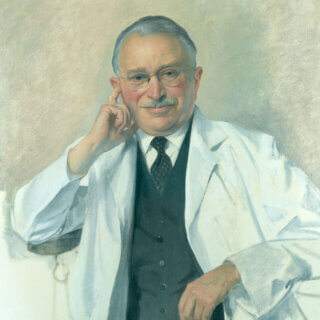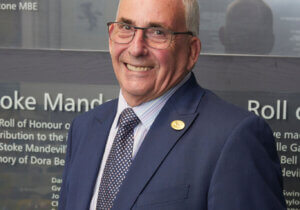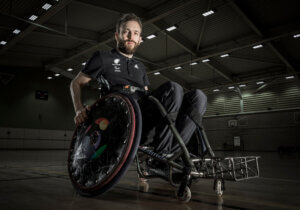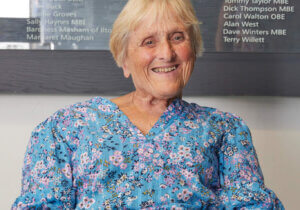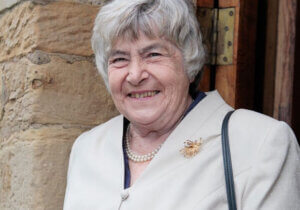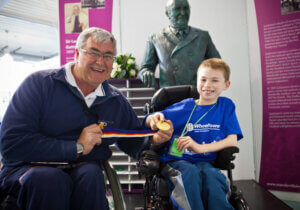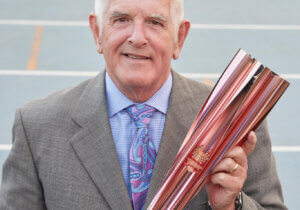
One of the leading pre-World War II neurologists in Germany, Guttmann worked at the Jewish Hospital in Breslau until 1939, when he was forced to flee to England. In 1944, Guttmann was asked by the British Government to found the National Spinal Injuries Centre in Stoke Mandeville. He was appointed the position of director at the Centre, a position he held until 1966.
As director, he believed sport was a method of therapy, using it to help build physical strength and self-respect. In 1948 Guttmann organised the first competition at Stoke Mandeville including 16 injured servicemen and women and so started a movement which led to the Paralympic Games. By 1952, Guttmann’s Stoke Mandeville Games had grown to over 130 international competitors, and it continued to grow, impressing Olympic Games officials and the international community. In 1956, Guttmann was awarded the Fearnley Cup, an award for outstanding contribution to the Olympic ideals.
Starting in 1960 in Rome and continuing to today, the Paralympic Games are held after the Olympic Games, often in the same city. In 1960 Guttmann also founded the British Sports Association of the Disabled. Guttmann received Great Britain’s OBE and CBE and was honoured worldwide. In the 1970’s Guttmann founded the British Paraplegic Sports Society which later became the British Wheelchair Sports Foundation and now operates as WheelPower. Guttmann also established the Stoke Mandeville Stadium which opened in 1969 and when he retired from Stoke Mandeville Hospital worked at the Stadium which hosted many Stoke Mandeville Games and events at national and international level.
Guttmann was a pioneer and his work and influence transformed the lives of countless disabled men and women in the UK and around world. The Paralympic movement is his legacy and the Paralympic Games showcase his belief that disabled people can achieve elite levels in sport as well as use sport and physical activity to improve their health and wellbeing.
Sir Ludwig Guttmann passed away in 1980 having worked tirelessly to improve the day-to-day lives of those with disabilities and seeing the influence of his games touch thousands of people worldwide. His vision continues to inspire all those who strive for his dream: the full integration of those with disabilities into mainstream society.
Sir Ludwig was inducted to the Stoke Mandeville Hall of Fame by HRH The Prince of Wales in 2003.

